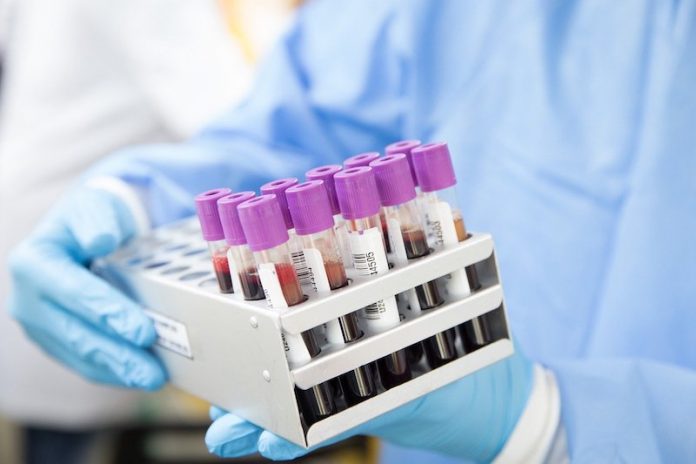
In a new study from the University of Oxford, researchers confirmed that COVID-19, not vaccination, presents the biggest blood clot risks.
They reported the findings from over 29 million people vaccinated with first doses of either the ChAdOx1 nCov-19 “Oxford-AstraZeneca” vaccine or the BNT162b2 mRNA “Pfizer-BioNTech’ vaccine.
They found that with both of these vaccines, for short time intervals following the first dose, there are increased risks of blood clots.
They also found that the risks are much higher and over longer periods of time if they become infected with SARS-CoV-2.
In this study, the team compared rates of adverse events after vaccination with Pfizer-BioNTech and Oxford-AstraZeneca vaccines with rates of the same events after a positive SARS-CoV-2 test result.
For this, they used routinely collected electronic health records to evaluate the short-term risks (within 28 days) of hospital admission with blood clots, heart attacks, and stroke.
They focused on thrombocytopenia (a condition with low platelet counts) and thromboembolic events (blood clots) following vaccination for COVID-19.
Some of the same events have led to the restricted use of the Oxford-AstraZeneca vaccine in a number of countries.
The team, using data on over 29 million vaccinated people, found that there is a very small risk of clotting and other blood disorders following the first dose COVID-19 vaccination.
But the risk of these same outcomes is much higher following COVID-19 infection.
Researchers say that the analyses in this paper are a vital addition to all of the work to enhance the understanding of the virus.
The findings clearly underscore the importance of getting vaccinated to reduce the risk of these clotting and bleeding outcomes.
If you care about COVID and your health, please read studies about Vitamin D and COVID-19: What you need to know and findings of scientists find existing drugs that can kill COVID-19 virus.
For more information about COVID, please see recent studies about this common heartburn drug may help treat COVID-19 and results showing that scientists find the key to suppressing COVID-19.
The study is published in the British Medical Journal. One author of the study is Julia Hippisley-Cox.
Copyright © 2021 Knowridge Science Report. All rights reserved.



